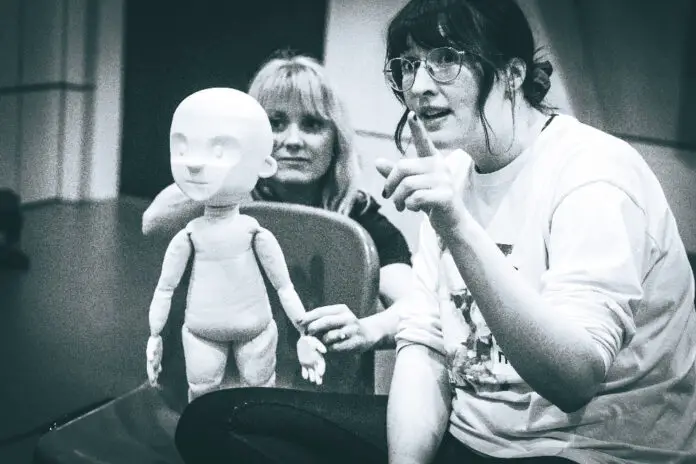Company Four, in collaboration with the national charity Action On Postpartum Psychosis (APP) and Waterside Arts, Sale, is proud to present Who Is Your Mummy and Where Did She Go?—a powerful and thought-provoking theatre production aimed at raising awareness of postpartum psychosis and reducing the stigma surrounding maternal mental health.
Opening on Friday, January 31st at Waterside Arts, the production explores historical narratives of women diagnosed with postpartum psychosis, using their stories to reflect on contemporary care and societal attitudes. This unique blend of theatre and advocacy brings together compelling storytelling, live performance, and projected poetry to create an emotionally resonant and inspiring experience.
Postpartum psychosis (PP) is a severe but treatable mental health condition that affects 1 in 500 new mothers. Core symptoms may include not needing to or being unable to sleep, hallucinations, delusions, confusions and mania. While support and treatment have improved over the years, stigma and a lack of understanding still prevent many women from seeking help. This production aims to foster compassion and understanding by using the past as a guide to inform and improve today’s care.
This production is not just a performance—it’s a call to action. By raising awareness, challenging stigma, and advocating for better care, Who Is Your Mummy and Where Did She Go? invites audiences to be part of a conversation that has the potential to save lives.
Director Gemma Whitley explains, “This show is not just about history—it’s about the present. By exploring the untold stories of women from the past, we’re inviting audiences to rethink how we view and support maternal mental health today. Theatre has the power to open up these conversations in a deeply human and accessible way.”
The production is supported by APP, a leading national charity working to raise awareness of postpartum psychosis, provide peer support, and advocate for improvements in care.
Jenny Stevenson, National Peer Support Co-ordinator (Online Services), said: ‘Members of the APP team and our lived experience community have been delighted to support this production through the research and development process and through creative workshops. Giving a voice to postpartum psychosis and maternal mental health through art is extremely powerful – we are looking forward to seeing the performances and how sharing our experiences of postpartum psychosis has helped to inform the production.’







